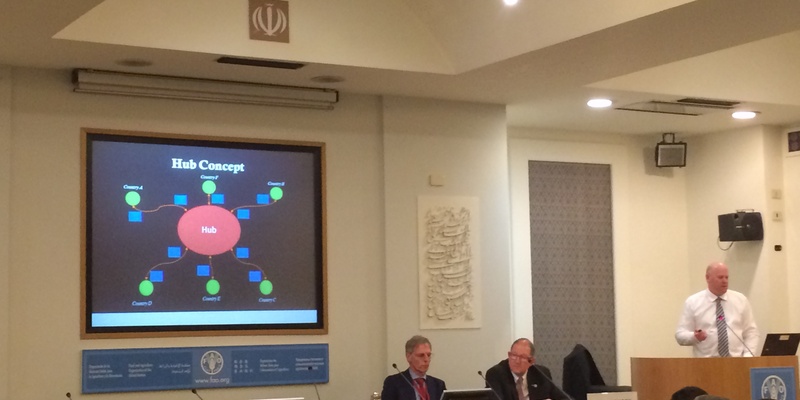e-Phyto gets a go-ahead
Posted on mar, 10 Mar 2015, 10:35

Every year, millions of phytosanitary certificates are created, printed, and exchanged between countries as part of the global trade in plant products. These certificates reassure importers that the products have been inspected and found to be free of the kinds of pests that could devastate their local economy by harming agriculture or the environment.
This essential effort is costly in terms of time and resources. That complex, costly and bureaucratic process could now become a thing of the past. Yesterday (17 March 2015) the Commission on Phytosanitary Measures (CPM), the governing body of the International Plant Protection Convention (IPPC), agreed to develop a global system of electronic phytosanitary certificates, known as e-Phyto.
e-Phyto is designed to eventually replace paper certificates entirely. At its heart will be a central hub, which will receive certificates from National Plant Protection Organisations (NPPOs) in exporting countries and makes them available to the NPPOs of importing countries. The hub will not store the certificates but provides a simple and secure method for exchange, eliminating the need for countries to negotiate exchange protocols bilaterally with each and every trading partner.
Security and confidentiality are crucial concerns that have been thoroughly addressed in the system design, Peter Thomson, immediate past IPPC Bureau member and Bureau lead for the ePhyto development, told delegates to CPM at a briefing session prior to the formal decision. Secure electronic exchange of certificates between NPPOs will eliminate problems some countries currently experience with the use of fraudulent certificates by importers or exporters.
The hub model is expected to be a lot less costly than existing paper-based methods and will significantly strengthen global harmonization and adherence to the IPPC standards for phytosanitary certification. There ll be one set of rules, Thomson said and one way to interpret them. This will be just one benefit of e-Phyto, which is expected to simplify and reduce the cost of global trade, increase the ability of countries to identify items that pose a high risk and reduce the potential for fraud and hence collateral damage.
The e-Phyto system will be entirely voluntary, and open to any country that wishes to make use of it. Both trading partners will need to agree to use the hub. A variety of different business models are being explored, with at least some of the maintenance costs eventually being borne by those who use the system. That in itself will provide an incentive to join e-Phyto, because costs will be lower than existing systems and will drop as the costs of e-Phyto are spread over more certificates.
Yesterday''s decision by CPM supports a request to the Standards and Trade Development Facility of the World Trade Organization to provide funds for the initial establishment of e-Phyto. An important component of the proposed project is the establishment of a generic national system for the creation and receipt of phytosanitary certificates. Developing countries that do not currently have the capacity to engage in e-Phyto will nevertheless be able to use this generic system.
Many contracting parties to the IPPC expressed strong enthusiasm for this new tool for developing countries. If the STDF project is approved, work could begin as soon as May 2015, with the possibility of a pilot starting before the end of 2015.

